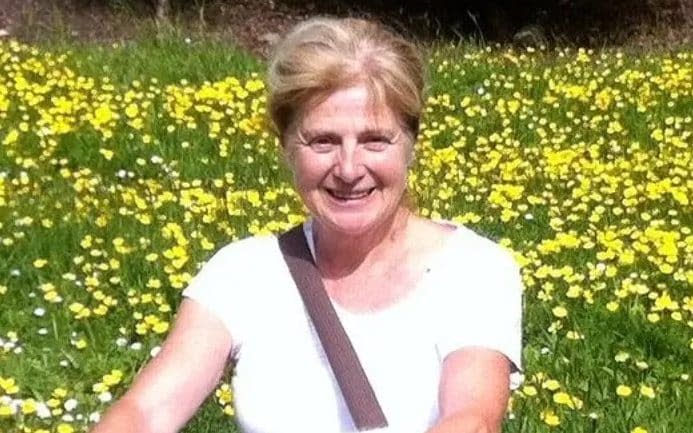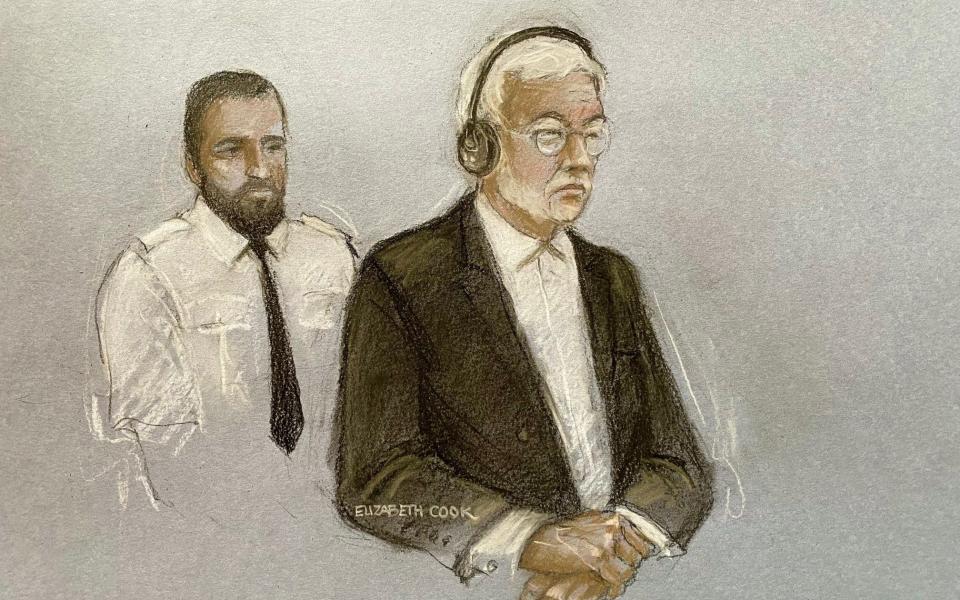‘Slapping therapist encouraged follower not to take lifesaving insulin’

An alternative healer who thought Western medicine was evil killed a diabetic grandmother at a “slap therapy workshop” after encouraging her to stop taking insulin, a court has heard.
Hongchi Xiao allegedly congratulated Danielle Carr-Gomm when she stopped taking the drug at his four-day retreat where he performed paida lajin, a Chinese holistic therapy that involves slapping patients.
Mrs Carr-Gomm, 71, a follower of Mr Xiao’s who wanted to get rid of her Type 1 diabetes, fell gravely ill over the course of the 2016 workshop and on day four of the retreat she died of diabetic ketoacidosis.
On Monday jurors heard Mr Xiao, 61, ignored medical evidence that diabetics need lifesaving insulin and evangelised his slap therapy course as a cure.
Mr Xiao, who is accused of manslaughter, is said to have refused to call for urgent medical intervention and led patients to think that Mrs Carr-Gomm’s worsening condition was a “healing crisis”.

Prosecutors said he had entrenched views that medicines such as insulin were poison and believed in the “curative powers of paida lajin”.
Paida lajin means “slap and stretch” in Chinese and involves practitioners slapping patients all over their body to apparently expel poisonous waste.
Mr Xiao was previously convicted of manslaughter in Australia after a six-year-old boy with Type 1 diabetes stopped taking insulin under his instruction and died during a workshop about 17 months before Mrs Carr-Gomm’s death.
Mr Xiao of Cloudbreak, California, appeared on Monday at Winchester Crown Court, Hampshire, for the first day of his three-week trial. He denies manslaughter.
Mrs Carr-Gomm died at Mr Xiao’s four-day paida lajin course at Cleeve House in Melksham, Wiltshire, in October 2016.
Mr Xiao, who has no medical qualifications or training, said the therapy could lead to full recovery in 90 per cent of cases including people with diabetes.
Told about the risk
In March 2015 Mr Xiao held a workshop in India with the Diabetes Research Centre and a report was given to him, telling him about the risk of death for Type 1 diabetics who stop taking insulin.
A month later, in Australia, the six-year-old boy’s parents took their son to Mr Xiao’s workshop to try to cure his condition.
Mr Xiao was found by an Australian court to have told the boy’s parents to stop giving him insulin and when he was dying before them, Mr Xiao said he was simply detoxing.
Mrs Carr-Gomm of Lewes, East Sussex, first attended one of Mr Xiao’s workshops in Bulgaria in July 2016.
She was an “obsessive vegetarian” who had a fear of needles, so did not like injecting insulin and as a result tried every kind of alternative therapy, the court heard.
At the Bulgarian workshop, Mr Xiao assured Mrs Carr-Gomm he could help her with her diabetes and she stopped taking insulin. However, she was eventually given it when she became extremely unwell.
Duncan Atkinson KC, prosecuting, said Mr Xiao had an “important influence” over Mrs Carr-Gomm and owed her a duty of care at the Wiltshire workshop in October 2016 as he knew the seriousness of not taking insulin.
Mr Atkinson said Mr Xiao would have known there was an obvious and serious risk of death.
Mr Atkinson also said Mr Xiao’s “failure to take reasonable steps in those circumstances substantially contributed to Mrs Carr-Gomm’s death and amounted to gross negligence”.
‘Crying and yelling’
Mr Atkinson said that after Mrs Carr-Gomm stopped taking her insulin she “exhibited clear signs of being increasingly and seriously unwell”.
On the second day of the workshop, Mrs Carr-Gomm was heard “crying and yelling” while lying on her bed.
A day later she was vomiting and by the evening she was “howling in pain and was unable to respond to questions”.
Mr Atkinson said: “[Mr Xiao] had, but did not take, repeated opportunities to call for medical assistance.
“Both his experience with [the six-year-old boy] and with Mrs Carr-Gomm in Bulgaria would have made abundantly clear to him that her life was increasingly in danger.
“The medical evidence is that Mrs Carr-Gomm’s life could have been saved if medical aid was called.”
By the time medical assistance was sought the next day it was too late. Mrs Carr-Gomm had died of diabetic ketoacidosis as a “direct result of the decision to stop taking insulin”, Mr Atkinson said.
The trial continues.

 Yahoo News
Yahoo News 
